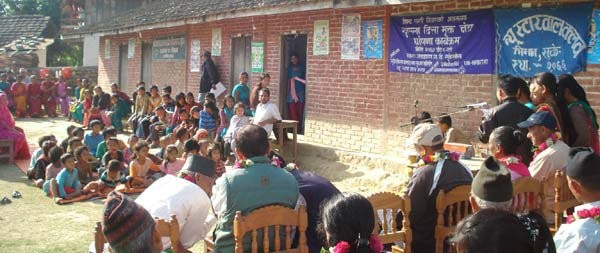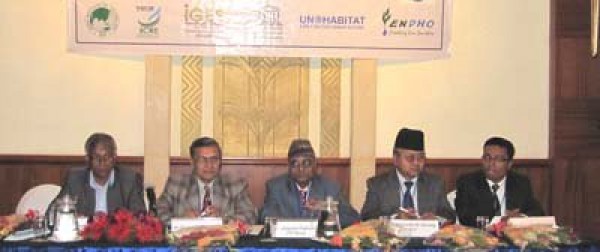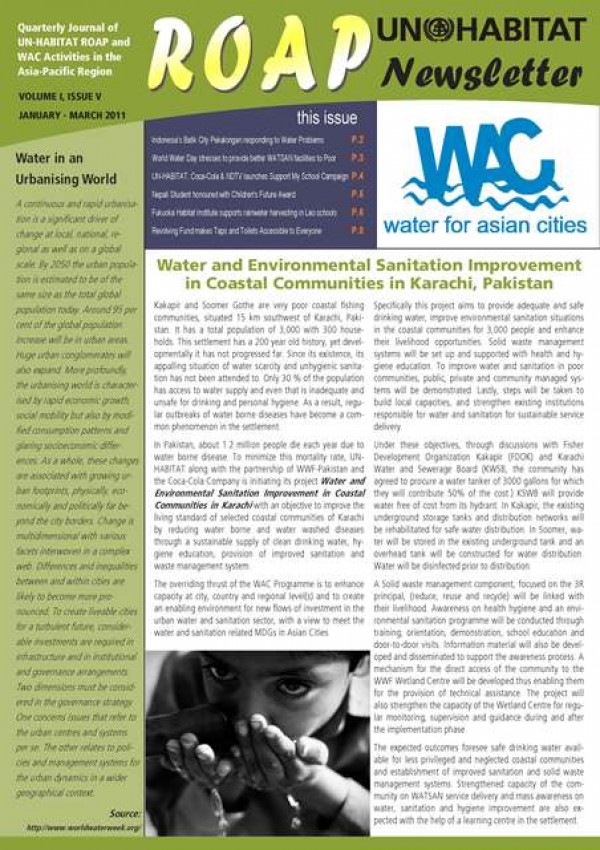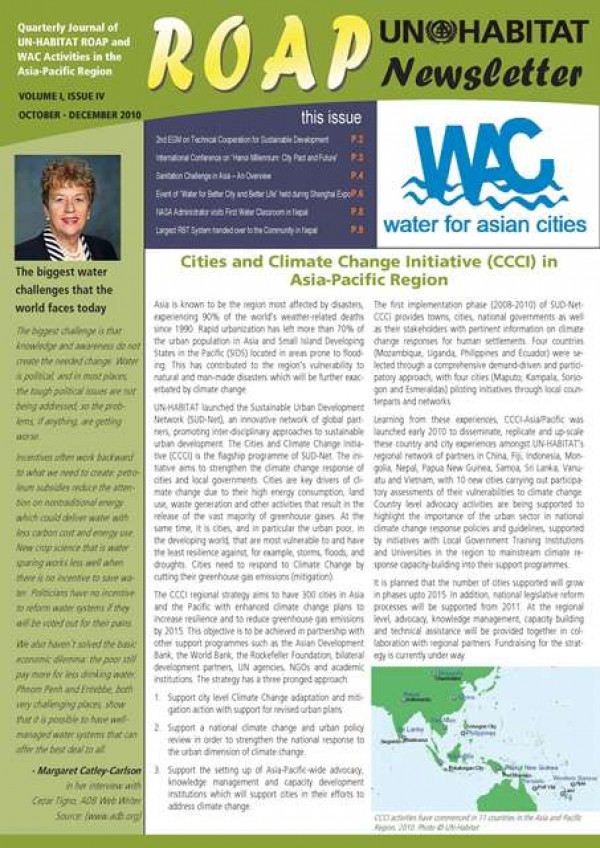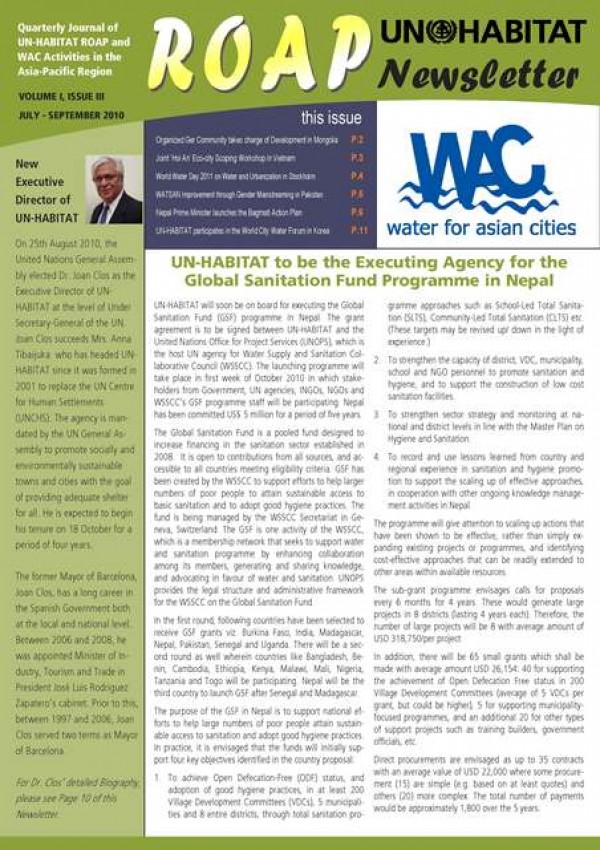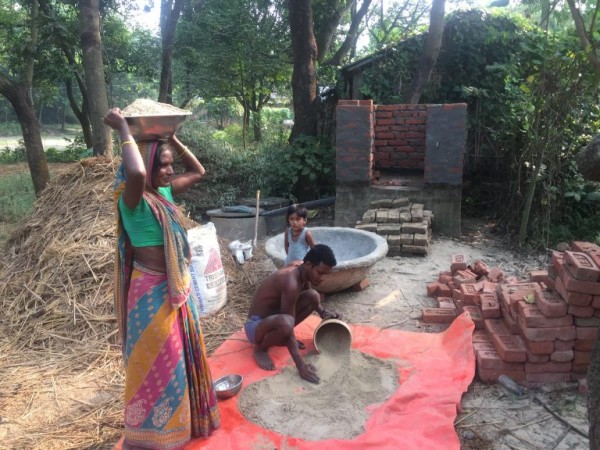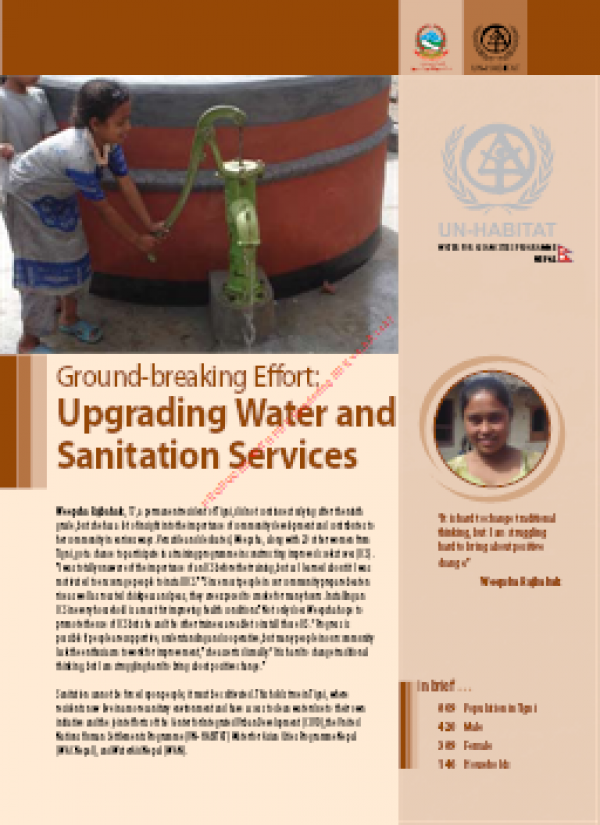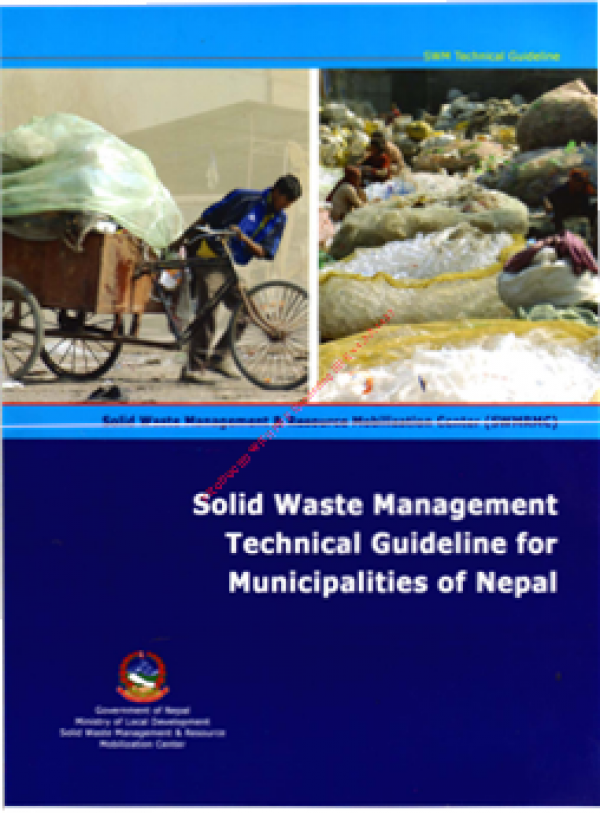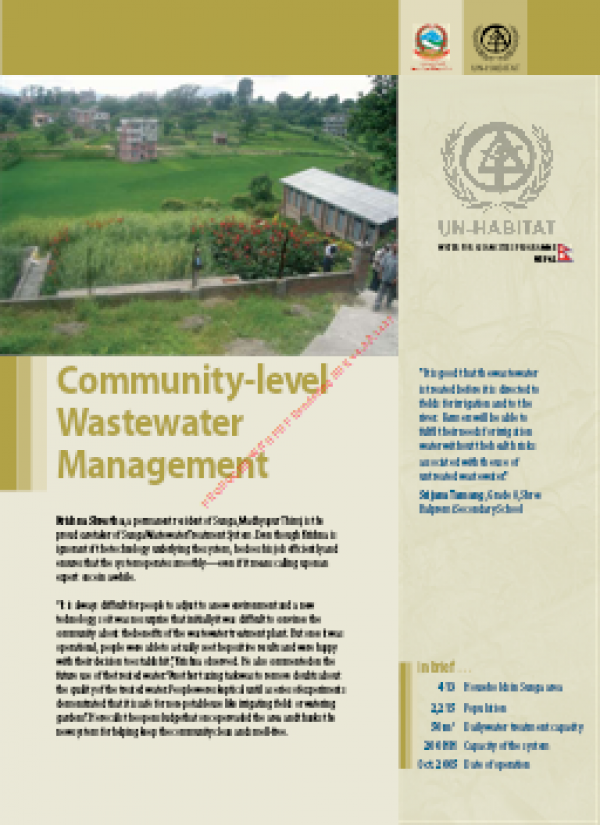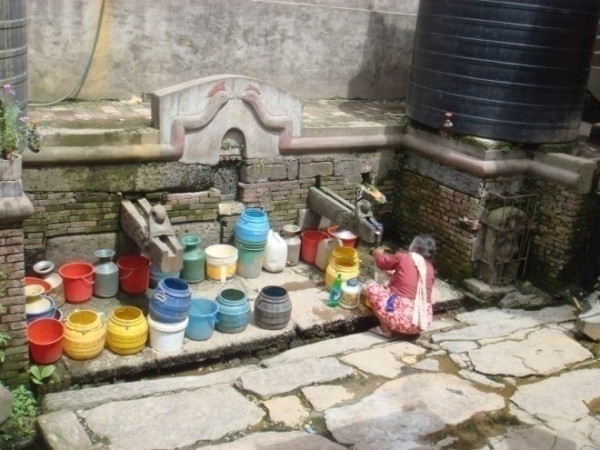
Water for Asian Cities Programme Nepal
Brief Description
UN-Habitat Water for Asian Cities (WAC) Program, a collaborative initiative between the UN-Habitat, the Asian Development Bank (ADB) and Governments of Asia, was officially launched at the Third World Water Forum on 18 March 2003.The first Asian Ministerial Forum held in Osaka, Japan on 19 March 2003 a Ministerial Declaration on WAC.
The program is supporting in the implementation of water and sanitation related MDGs and targets in Asian cities specifically promoting pro-poor governance, water demand management, increased attention to environmental sanitation, and income generation for the poor linked to water supply and sanitation. The program seeks to achieve this by:
(a) Mobilizing political will;
(b) Raising awareness through advocacy, information and education;
(c) Training and capacity building;
(d) Promoting new investments in the urban water and sanitation sector; and
(e) Systematic monitoring of progress towards achieving the MDG 7 and its targets 10 and 11.
In order to pursue the MDG 7- target 10 of reducing the population of people without sustainable access to safe drinking water
and basic sanitation to half by 2015, UN-Habitat, under the WAC Program, is developing approaches for making interventions at municipal / semi-urban levels to extend coverage to unserved households with higher levels of sustainability.
Vision of WAC Program
“Contribute to the achievement of the internationally agreed goals related to water and sanitation in human settlements in Asian countries with particular focus on the urban poor in order to facilitate on equitable social, economic and environment development
WAC Program in Nepal
UN-Habitat initiated various Water and Sanitation activities in Nepal in late 2004 after receiving letter of interest from Government of Nepal (GoN). To formally establish the WAC Program in Nepal, a MoU was signed between the GoN and UN-Habitat in December 2006. The main objective of WAC Program Nepal is to demonstrate innovative initiatives on water and sanitation sector which can be scaled up and help to meet MDG targets at the local level. The specific objectives are to:
(a) achieve pro-poor water and sanitation investment in selected Peri-urban centers and/or small towns;
(b) enhance institutional and human resources capacities at local levels for the sustainability of water and sanitation services and for participation in service delivery;
(c) enhance economic development in peri urban centers through improved water, sanitation as well as related income generation activities; and
(d) increase access to safe, reliable, environmental friendly and affordable services for sustainable development and poverty reduction.
The WAC Program Nepal initiated with small interventions in 2005 in Kathmandu Valley, urban and peri-urban communities to
demonstrate innovative water and sanitation activities. These activities have proved as stepping stones for WAC Program Nepal to establish itself as a major stakeholder in urban WATSAN sector as it has scaled up its activities to other parts of Nepal. The WAC Program Nepal has signed cooperation agreement with government, municipalities, external development partners, INGOs, NGOs and civil society organizations such as Department of Water Supply and Sewerage (DWSS), Department of Urban Development and Building Construction (DUDBC), Municipalities, Solid Waste Management and Resource Mobilization Centre, Practical Action Nepal, WaterAid Nepal (WAN), Biogas Sector Partnership Nepal, Centre for Energy Studies (Tribhuvan University),NGO Forum for Urban Water and Sanitation, Lumanti Support Group, Environment and Public Health Organization, Municipal Association of Nepal to improve WATSAN service delivery in the urban and semi urban areas.
The WAC Nepal works closely with UN agencies like UNDP, UNICEF, WHO and PPPUE/UNDP. It also works in close coordination with ADB supported projects to incorporate supplementary activities to these projects while developing its projects plans.
